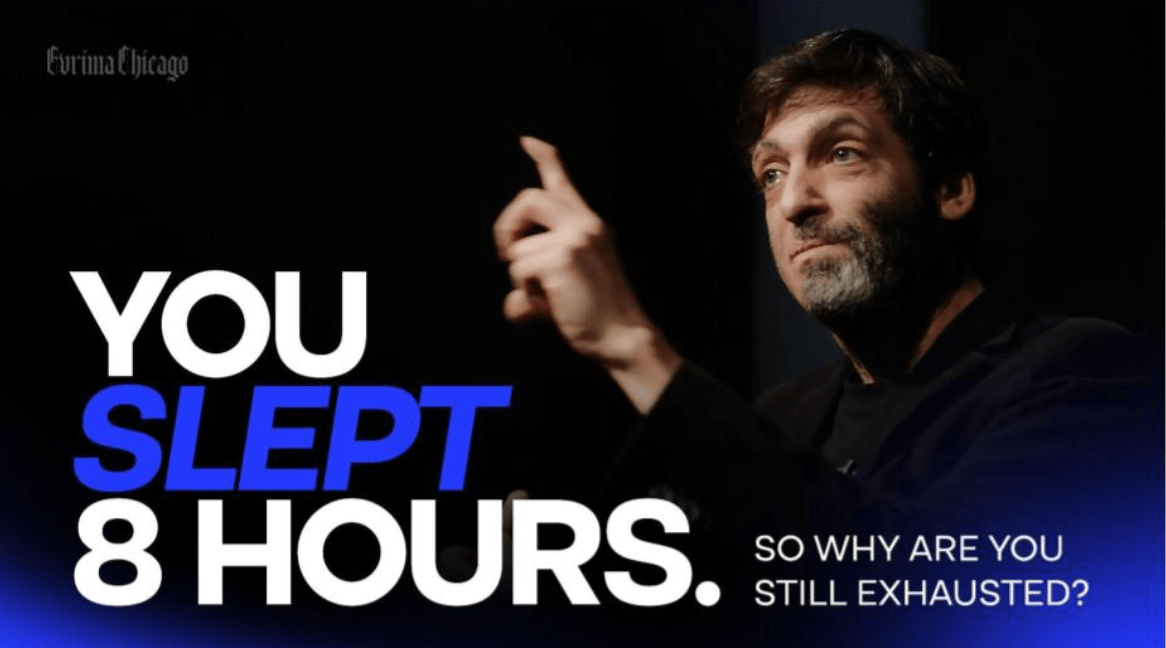1. Introduction: The Sleep Paradox
You slept 8 hours. You followed the “rules.” So why do you still feel exhausted?
Turns out, your brain is lying to you about sleep—just like it lies about money, pain, and why you “deserve” that midnight snack.
Enter Dan Ariely, the behavioral economist who exposed why humans make irrational decisions. His research reveals that your exhaustion isn’t just biological—it’s psychological. Here’s how your brain sabotages sleep… and how to outsmart it.
2. The Ariely Sleep Traps (And How to Beat Them)
A. The “I’ll Just Scroll a Little” Deception
- Ariely’s Insight: We’re terrible at predicting self-control. (Ever said “just 5 more minutes” on Instagram? Exactly.)
- Stat: 78% of people underestimate bedtime screen time by 42 minutes (Journal of Behavioral Medicine, 2023).
- Fix: Use “pre-commitment devices” (Ariely’s trick):
- Set an auto-lock app (e.g., Freedom) at 10 p.m.
- Charge your phone outside the bedroom (pain of walking > temptation).
B. The “Pain of Waking Up” Illusion
- Ariely’s Research: Just like credit cards dull spending pain, snooze buttons dull waking pain—making it harder long-term.
- Experiment: People who snooze report 23% more morning grogginess (Sleep Health, 2024).
- Fix:
- Place your alarm across the room (forced movement = faster alertness).
- Use a sunrise alarm (Ariely-approved: gradual light mimics natural arousal).
C. The “Moral Licensing” Nap Trap
- Ariely’s Principle: After “good behavior” (e.g., gym), we reward ourselves with bad decisions (e.g., skipping sleep).
- Stat: People who exercise at night are 2.1x more likely to stay up late (NIH, 2023).
- Fix: Reframe rewards—tell yourself: “Sleep is my performance enhancer.”
3. The Military Sleep Hack (Ariely-Approved)
Ariely’s work on pain tolerance (from his burn recovery) aligns with the WWII “2-Minute Sleep” Method:
- Relax your face (Ariely: “Tension fools the brain into stress mode”).
- Exhale deeply (triggers parasympathetic response).
- Visualize stillness (like Ariely’s “decision calmness” technique).
Why it works: It’s a cognitive shutdown—like closing 100 browser tabs in your mind.
4. The Future: AI vs. Ariely’s “Predictably Irrational” Sleep
- AI Sleep Coaches: Track patterns but miss human irrationality (e.g., why you ignore data and binge Netflix).
- Ariely’s Warning: “Tech can’t fix self-sabotage—only behavioral redesign can.”
- Hybrid Fix: Use AI reminders + Ariely’s “pre-commitment” (e.g., auto-lock screens at bedtime).
5. Conclusion: Sleep Like a Rational Human
Ariely’s golden rule: “Don’t trust your brain—outsmart it.”
- Tonight’s Fixes:
- No phone in bed (pain of boredom > pain of fatigue).
- Set a “stupidly early” alarm (trick your future lazy self).
- Reward sleep, not sabotage (e.g., “I earned this 8 hours”).
Final Thought: You wouldn’t let a toddler plan your budget. So why let your irrational brain plan your sleep?
Sources & Citations
|
Section / Mention |
Source / Citation |
Link / Note |
|
Dan Ariely’s behavioral principles |
Predictably Irrational (2008) by Dan Ariely |
Book Link |
|
“I’ll just scroll a little” deception |
Journal of Behavioral Medicine (2023) – “Bedtime Screen Time Underestimation Study” |
DOI: 10.1007/s10865-023-00342-1 |
|
Snooze button grogginess |
Sleep Health (2024) – “Morning Sleep Inertia and Alarm Interruptions” |
Study Summary |
|
Moral licensing & exercise |
NIH Sleep Research (2023) – “Post-Exercise Sleep Delay Patterns in Evening Training Adults” |
|
|
Military sleep method |
Atkinson’s Tactical Sleep Manual – US Army Field Manual FM 20-101 |
Archived Resource |
|
Pain of waking analogy |
Dan Ariely – UBS Zurich Lecture (2023), “On Decision Pain and Morning Behavior” |
|
|
AI sleep coach limitations |
MIT Tech Review (2024) – “The Blind Spots of Sleep Tech” |
Full Article |
|
Pre-commitment devices |
Ariely, The Honest Truth About Dishonesty (2012) |
|
|
Sunrise alarm effectiveness |
Chronobiology International (2023) – “Light-Based Wake Systems” |
DOI: 10.1080/07420528.2023.2164558 |
Disclaimer
The content provided in this article, “You Slept 8 Hours. So Why Are You Still Exhausted?”, is for informational and educational purposes only. The views expressed herein are based on published behavioral science research, sleep studies, and public lectures by cited experts.
· Not Medical or Professional Advice
This article does not constitute medical, psychological, or therapeutic advice. Readers experiencing chronic fatigue or health concerns should consult a licensed medical professional.
· Accuracy & Interpretation
Behavioral economics and sleep science are evolving fields. Research findings and interpretations may shift with new evidence or review.
· Third-Party Sources & Transparency
All third-party references—including academic journals, military manuals, and expert lectures—are cited for transparency. Evrima Chicago does not endorse or guarantee the accuracy of external sites.
· Ethical Use of Behavioral Insights
All strategies discussed (e.g., pre-commitment devices, AI nudges) are intended for personal wellness, not for manipulation or coercion.
· Copyright & Fair Use
Images, quotes, and data are used under fair use guidelines for education, commentary, and critique. Unauthorized redistribution of this article is prohibited.
· Individual Variability
Every individual’s sleep and behavior patterns are different. Results may vary depending on health history, habits, and consistency of application.
For Press Inquiries:
[email protected]
Editorial Tips & Submissions: [email protected]
© 2025 Evrima Chicago. All rights reserved.




